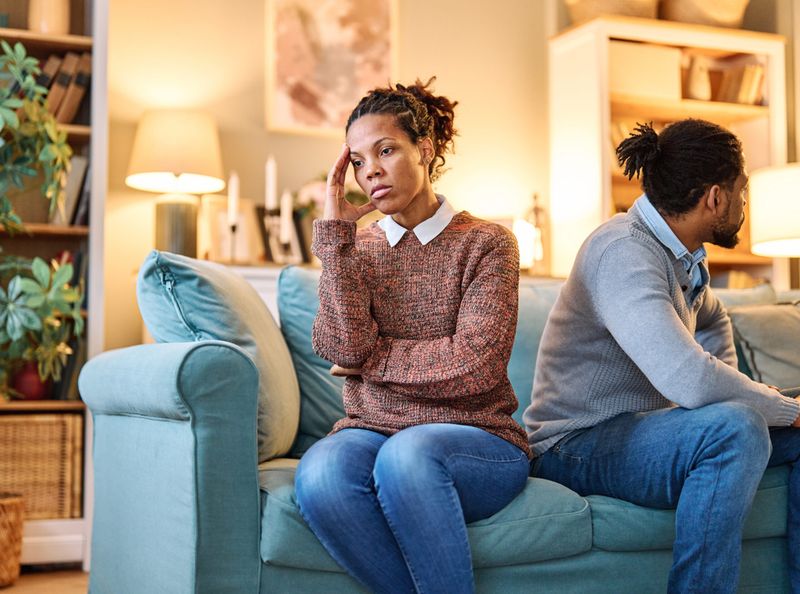15 Most Effective Ways To Respond When Someone Hurts You Deeply, According To Psychology
When someone hurts you deeply, it can feel like the ground beneath you is shaking. You’re left spinning, either frozen, furious, or somewhere in between.
In those intense moments, finding clarity is crucial. Instead of reacting impulsively, it’s important to respond with intention and emotional intelligence.
Here are 15 grounded responses that not only protect your peace but also reflect self-awareness, boundary-setting, and emotional maturity.
1. I need time to process what just happened.

When emotions run high, immediate responses aren’t obligatory. Giving yourself time to process the hurt allows for a measured reaction. It enables you to gather your thoughts, understand your feelings, and decide on the next steps.
This pause is not avoidance; it’s introspection. By stepping back, you grant yourself the grace to heal and reflect.
It’s about prioritizing mental clarity over impulsive exchange. This approach fosters emotional resilience and prepares you for a more constructive dialogue later.
Taking time shows maturity, self-respect, and a commitment to mindful communication.
2. That hurt—and I want to be clear about why.

Acknowledging the hurt is the first step towards healing. Clearly expressing why something hurtful matters opens the door to understanding and resolution.
It moves beyond blame, aiming to articulate feelings that need to be addressed. By naming the pain, you validate your emotions and set a foundation for healing.
This clarity can lead to productive conversations and potential reconciliation. It’s a powerful way to stand up for yourself with grace and assertiveness.
3. I don’t accept the way I was spoken to.

Respect in communication isn’t optional. By expressing that you don’t accept harmful words, you assert your dignity and worth.
This statement isn’t about confrontation; it’s about setting clear expectations for future interactions. It’s a declaration of self-respect and a reminder that everyone deserves to be treated with kindness.
Through this, you establish boundaries that protect your emotional well-being and foster healthier connections.
4. This crossed a line for me.

Sometimes, actions or words go too far, and it’s important to voice that. Saying “this crossed a line for me” communicates your limits without needing to justify them.
Boundaries are essential for healthy relationships, and clearly stating them helps prevent future transgressions.
This expression is about honoring your feelings and maintaining respect in your interactions.
5. I don’t feel safe continuing this conversation right now.

Your emotional safety is paramount. If a conversation feels too intense or unsafe, expressing the need to pause is crucial.
This statement is about self-preservation, not avoidance. It acknowledges the need for a safer space to process emotions without escalating tension.
By prioritizing your emotional well-being, you create a healthier dynamic for future discussions.
6. I can forgive, but I won’t forget how I felt.

Forgiveness is a personal journey, but it doesn’t erase the memory of how something made you feel. By acknowledging this, you honor your truth while opening the door to healing.
Forgiving doesn’t mean condoning the hurtful act, but it allows you to release its hold on you.
This statement highlights your capacity for compassion and the importance of self-awareness in the process of moving forward.
It’s about balancing empathy with self-compassion.
7. This isn’t something I’m willing to overlook.

Some things cannot be ignored, and it’s okay to express that. By communicating that you’re not willing to overlook certain actions, you reinforce your boundaries and the importance of accountability.
This stance is about valuing honesty and integrity in your interactions.
It’s a reminder that meaningful relationships require attention and effort, and some issues need to be addressed rather than swept aside.
8. I’m not ready to talk about this yet.

Silence can be a powerful boundary. By stating you’re not ready to discuss something, you respect your own pace in processing emotions.
This isn’t avoidance; it’s about thoughtful timing. It gives you control over when and how you choose to address the issue.
Allowing yourself this space fosters a healthier mental state and ensures that when the time comes, the conversation will be more productive and sincere.
9. If this is how I’m treated, I need to take a step back.

Sometimes, stepping back is essential for your well-being. If you’re consistently treated poorly, articulating the need for distance is a form of self-care.
This isn’t about punishment; it’s about protecting your peace and evaluating the relationship from a healthier perspective.
By creating space, you empower yourself to consider what you need and deserve in your interactions.
10. I need more than an apology—I need change.

Words alone aren’t enough for true healing. Expressing the need for change rather than just apologies highlights the importance of actions over words.
It’s a call for genuine commitment to improve and repair the relationship.
This approach underscores the value of accountability and demonstrates that meaningful change is both noticed and appreciated.
11. This version of our relationship doesn’t work for me anymore.

Relationships evolve, and sometimes they need to be reassessed. Voicing that the current state of a relationship isn’t working signals your willingness to seek a healthier dynamic.
This isn’t rejection; it’s an opportunity for growth.
By addressing this, you invite a conversation about mutual expectations and changes that might lead to a more fulfilling connection.
12. I care about you, but I care about myself too.

Balance in relationships isn’t selfish. By expressing care for both yourself and others, you acknowledge the necessity of mutual respect and self-care.
This statement is about ensuring that your needs aren’t overshadowed by the desire to maintain harmony.
Emphasizing self-love alongside care for others is key to nurturing healthy, balanced relationships.
13. I don’t want to pretend everything’s fine.

Pretending can breed resentment and hinder healing. By refusing to act as if everything’s fine, you prioritize honesty and transparency.
This openness can pave the way for authentic conversations that foster mutual understanding and resolution.
Being truthful about your emotions ensures that relationships are built on genuine connections rather than superficial peace.
14. I hear your apology. I’m still figuring out how to move forward.

Forgiving isn’t instantaneous. Acknowledging an apology while still processing your feelings respects your own timeline for healing.
This isn’t about holding grudges; it’s about honoring your emotional journey.
By taking the time you need, you ensure that any steps forward are genuine and considered, leading to more sustainable and authentic relationships.
15. I deserve consistency—not just remorse.

Consistency in actions, more than mere words, is crucial for trust. By stating your need for consistency, you emphasize the importance of follow-through in relationships.
This isn’t about doubting someone’s intentions; it’s about ensuring that remorse translates into meaningful action.
In valuing consistency, you set a standard for genuine engagement and accountability.







